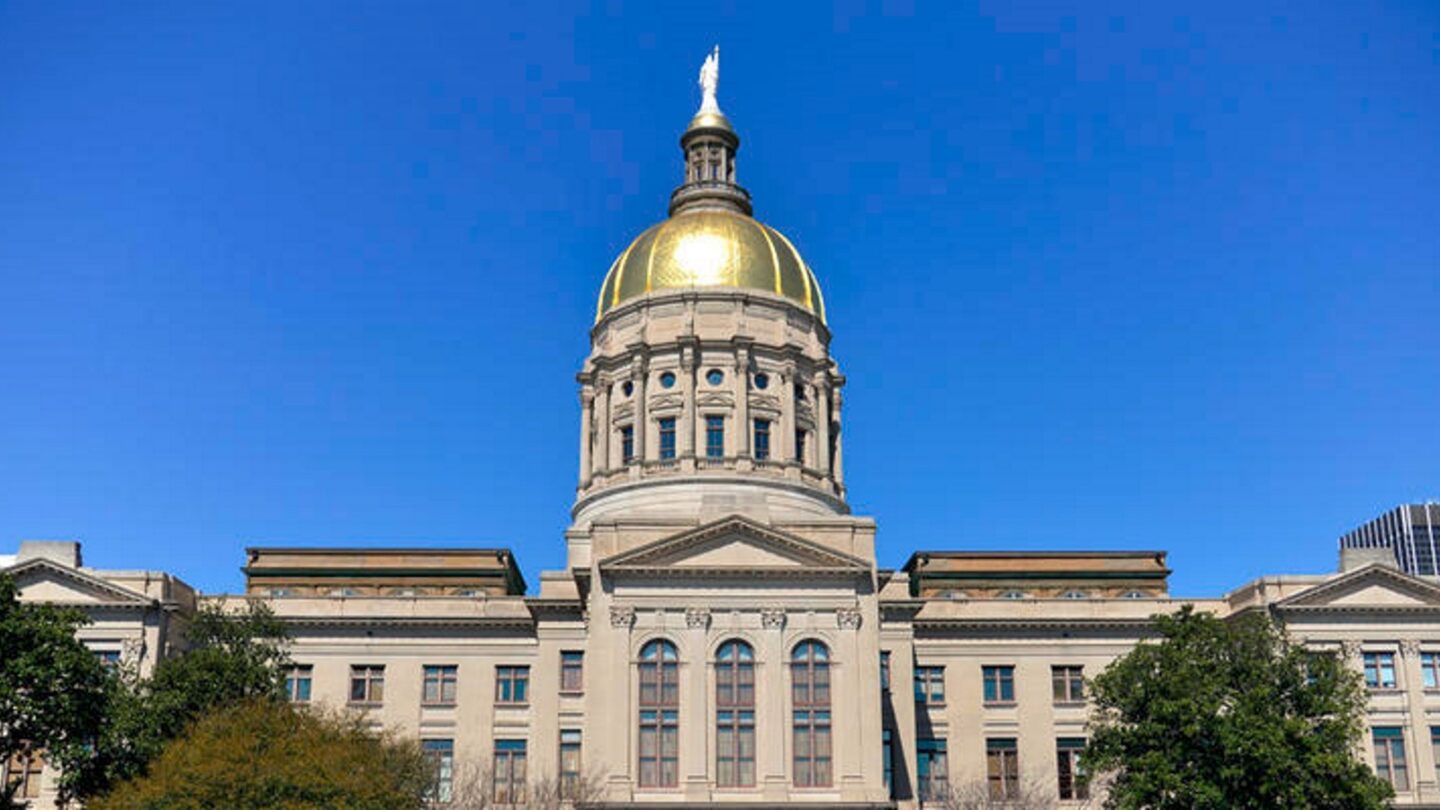Opposition to proposed hate crimes legislation in Georgia is building from lawmakers and civil rights groups previously in favor of it after Republicans in the state Senate added police as a protected class.
The ACLU and NAACP, as well as the state House and Senate Democratic caucuses, are among those now standing against the hate crimes measure.
The Rev. James Woodall, state president of the Georgia NAACP, said in an interview Monday that the addition of language protecting law enforcement is “toxic and a poison pill.”
“We are demanding that the legislature amend this bill to take out the first responders provision and to include data collection so that we can ensure the lives of all Georgia citizens are valued under the law,” Woodall said.
Calls for Georgia to remove itself from the list of four U.S. states without a hate crimes law have grown following the death of Ahmaud Arbery, a Black man pursued and fatally shot near Brunswick, Georgia in February. Three white men, including a father and son, are charged in his death. The calls have intensified further amid nationwide protests over racial injustice and police brutality.
Passed over a year ago by the state House, House Bill 426 would impose additional penalties for crimes motivated by the victim’s race, color, religion, national origin, sexual orientation, gender or disability. It was amended Friday in a Senate committee to also include “status of being or having been a first responder” by Republicans on the panel.
“If you’ll look at your TV now and listen to your radio you have law enforcement officers in Atlanta, Georgia that are walking off the job because they’re not appreciated for putting their lives on the line,” said Republican Sen. Bill Cowsert of Athens, who introduced the change.
Louisiana became the first state in the nation to expand its hate crimes law to protect police, firefighters and emergency medical crews in 2016. More than a dozen states have passed similar laws.
The addition to the Georgia proposal has caused many individuals and organizations previously pushing for passage to come out in opposition to the bill. Many critics say they support protecting police, but hate crimes legislation isn’t an appropriate place to do it.
The state House and Senate Democratic caucuses issued a joint statement Sunday saying the change “is harmful and undermines the purpose of hate crime legislation.”
“By including professional affiliation as a protected class, Senate Republicans have decided to ignore the cries of Georgians who are pleading for justice,” the statement said.
State Sen. David Lucas, a Democrat from Macon, said Saturday on the Senate floor that it’s wrong to include police as a protected class amid protests over wrongdoing by law enforcement.
“In a hate crime bill, that’s been brought on by incidents by police, and then to take them and put them in as a protected class … I would never vote for it. Never,” Lucas said.
The bill could soon move to the Senate floor for a vote. Time is running short, with the state’s legislative session set to wrap up Friday.
Proponents have tried for several years to get hate crimes legislation passed, after the Georgia Supreme Court in 2004 struck down a state hate crime statute for being too broad. But efforts have languished, with some conservatives cool to the idea. The addition of language protecting police could convince Georgia’s Republican lawmakers to back the proposal in greater numbers, despite criticism across the aisle.
For a deeper exploration of Ahmaud Arbery’s story, listen to WABE’s podcast, “Buried Truths.” Hosted by journalist, professor, and Pulitzer-prize-winning author Hank Klibanoff, season three of “Buried Truths” explores the Arbery murder and its direct ties to racially motivated murders of the past in Georgia.










